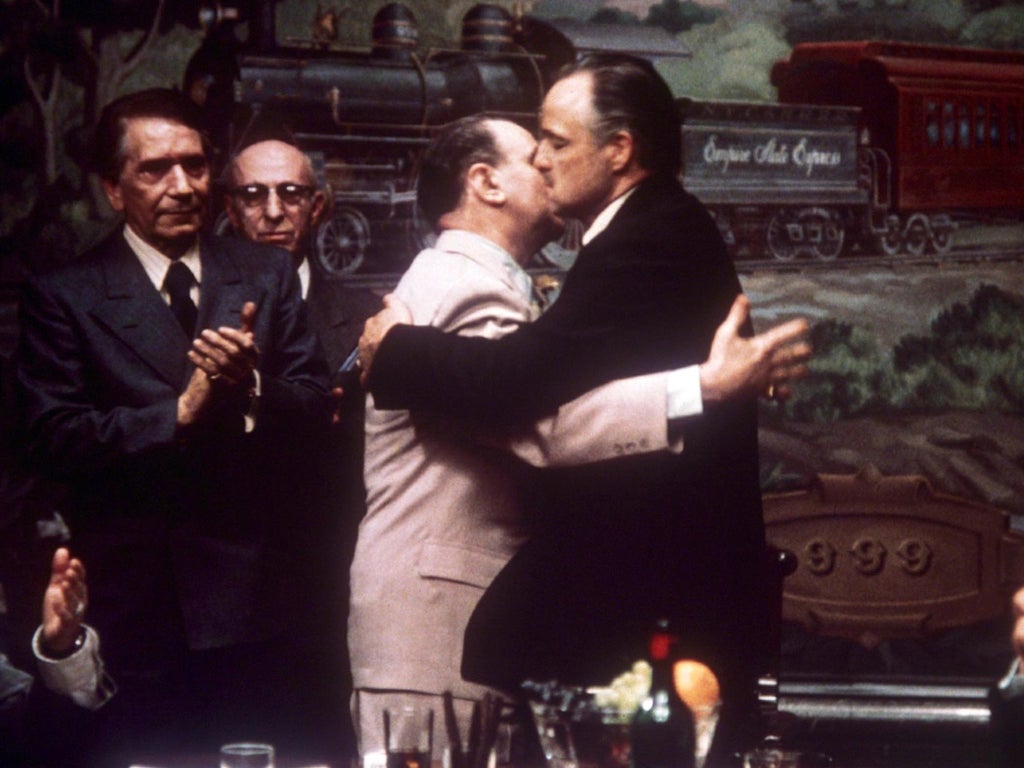10 greatest movie trilogies of all time
Jacob Stolworthy and Alex Pattle count down the best three-part film series in cinema history


It’s difficult to nail all three films in a trilogy. If the first – or even second – film in a series has won critical acclaim, the pressure is on to repeat the success with the concluding chapter. But it has been done several times.
There are a few different types of film trilogies. There are the influential blockbusters, many of which defined their respective genres in the 1970s and 1980s. Then there are the trilogies in which each film is “spiritually” connected by an idea or running theme.
Regardless of why it exists, each film in a series should be complemented by the films surrounding it. Below, we rank what we believe to be the 10 greatest film trilogies of all time.
It should be noted that we’ve counted the series that received a fourth entry decades on (for example, Indiana Jones) and omitted the ones that became a four-part series within 10 years (sorry to Toy Story and Jason Bourne).
10. The Living Dead trilogy
Horror trilogies are rare to come by, if only because they become cash cows spawning countless more sequels (see: Halloween, Friday the 13th, Saw). George A Romero’s zombie films (Night of the Living Dead, 1968, Dawn of the Dead, 1978 and Day of the Dead, 1985) work as chilling, gory horrors, but also as a commentary on society, consumerism and how the human race is more dangerous than the undead – perhaps a tired trope now largely thanks to The Walking Dead, but a scintillating one back then. Jacob Stolworthy
9. The Back to the Future trilogy
It’s hard to know how Back to the Future would have fared had Michael J Fox not been cast as Marty McFly. The fun he brings to the role alongside Christopher Lloyd’s Doc Brown is what gives Robert Zemeckis’s time travel trilogy its zest. Filled with endlessly quotable moments and scenes that will be parodied forever more, all three Back to the Future films are perfect family viewing. JS
8. The Indiana Jones trilogy
There is something warming about the old-fashioned style of the adventures on display in the Indiana Jones trilogy (we’re not including the belated and bonkers fourth instalment of The Kingdom of the Crystal Skull from 2008). George Lucas penned the stories, but it was superstar director Steven Spielberg who brought the narratives to life wonderfully between 1981 and 1989. Raiders of the Lost Ark, The Temple of Doom and The Last Crusade all contain perfect blends of mystery, action and humour, and it doesn’t take a lot to look past the slightly awkward chronology of the films and enjoy what proved to be an important role in the career of Harrison Ford. Alex Pattle
7. The Dark Knight trilogy
Christopher Nolan nailed the approach on his Dark Knight trilogy, digging out key themes and tones from the comic book history of Batman while making layered ‘Nolan’ movies each time. The thrilling momentum of The Dark Knight (2008) and Heath Ledger’s performance as The Joker overshadowed Batman Begins (2005) somewhat, but that first instalment is a vital, inspired origin story. The Dark Knight Rises (2012) suffers from a surprising lack of attention to detail in places, but is much better than some moviegoers remember. AP
6, The Godfather trilogy
Francis Ford Coppola’s Godfather trilogy, inspired by Mario Puzo’s novel of the same name, is arguably the greatest dramatic film series of all time. Centred on the bloody family business of the Corleones, the mafia trilogy is gilded with gravitas thanks to the presence of legendary thespians Marlon Brando, Robert De Niro, Al Pacino and Robert Duvall (to name but a few of the cast members). The first and second films (released in 1972 and 1974 respectively) duel in many conversations concerning the best movie of all time, while 1990’s third instalment – like some of the other finales on this list – is by no means a poor piece of cinema, it just doesn’t match up to the standard of its predecessors. AP

Watch Apple TV+ free for 7 days
New subscribers only. £8.99/mo. after free trial. Plan auto-renews until cancelled

Watch Apple TV+ free for 7 days
New subscribers only. £8.99/mo. after free trial. Plan auto-renews until cancelled

5. The Dollars trilogy
Sergio Leone defined the spaghetti western genre with his trilogy of films starring Clint Eastwood as a lone wolf riding through sand-strewn vistas on horseback. With no continuing story in each film, Eastwood anchors the series with a bravura performance that’s the very definition of doing a lot with a little. While The Good, the Bad and the Ugly (1966) stands tall as the best of the three, both A Fistful of Dollars (1964) and For A Few Dollars More (1965) are standout westerns in their own right, bolstered by Ennio Morricone’s classic score. JS
4. The Apu trilogy
Indian filmmaker Satyajit Ray was able to inject heart into any subject he tackled, but none more so than in these adaptations of Bibhutibhushan Bandopadhyay’s novels. Ray’s coming-of-age trilogy, featuring a young Bengali character named Apu, didn’t just show how effective a trilogy could be to enhance a character’s journey, but proved hugely influential for Indian cinema. The three films –Pather Panchali (1955), Aparajito (1956) andThe World of Apu (1959)– are considered to be among the country’s greatest films, and for good reason. JS
3. The Before trilogy
There’s only one trilogy on this list that inspired people to visit a Parisian bookshop, and this is Richard Linklater’s Before… series. It charts the relationship of Jesse (Ethan Hawke) and Celine (Julie Delpy), from their strangers on a train encounter in 1995’s Before Sunrise right through to their tempestuous marriage in Before Midnight, releasedin 2013. It’s the 80-minute real-time Before Sunset (2004), though, that could be its finest moment, reuniting the pair nine years after their first meet – a film that plays far differently knowing what’s to come. JS
2. The Lord Of The Rings trilogy
Peter Jackson’s trilogy, an adaptation of JRR Tolkien’s Lord Of The Rings novel, made this particular brand of fantasy not just accessible but cool with its first entry in 2001’s The Fellowship of the Ring. That film laid the foundations for a series that improved with each outing, 2002’s The Two Towers leading superbly into the following’s year’s mega-hit The Return of the King. The finale won all 11 Oscars for which it was nominated, including Best Picture and Best Director, proving this epic trilogy excels in so many facets and is for everyone, not just fantasy buffs. AP

1. The Star Wars originals
George Lucas’s momentous 1977 film Star Wars (later re-named Star Wars: A New Hope) was not just groundbreaking in terms of its visual effects, but also its world-building. While later entries in the saga played with politics (with mixed results), the original film’s simple “good versus evil, but in space” premise was foolproof. Impressively, 1980’s dark sequel The Empire Strikes Back is even more captivating than its predecessor, and contains one of the greatest plot twists of all time. The Return of the Jedi marked a slight step backwards, but is a fitting conclusion nonetheless. AP
Join our commenting forum
Join thought-provoking conversations, follow other Independent readers and see their replies
13Comments